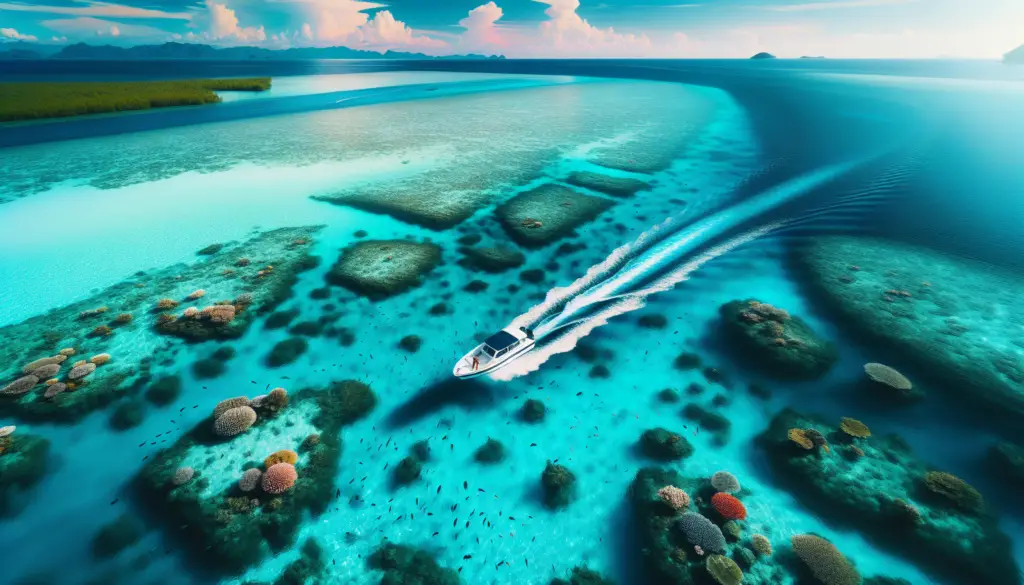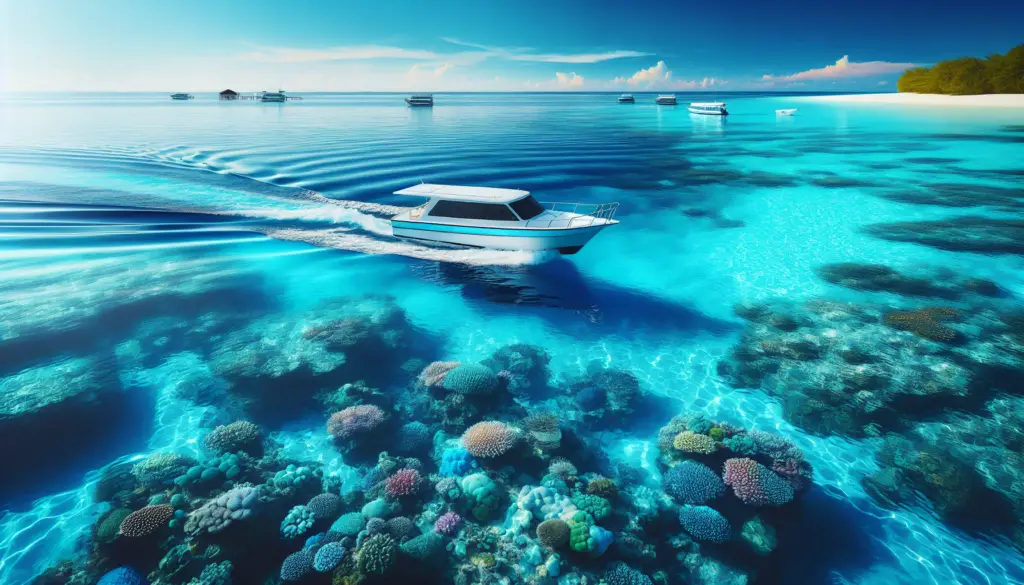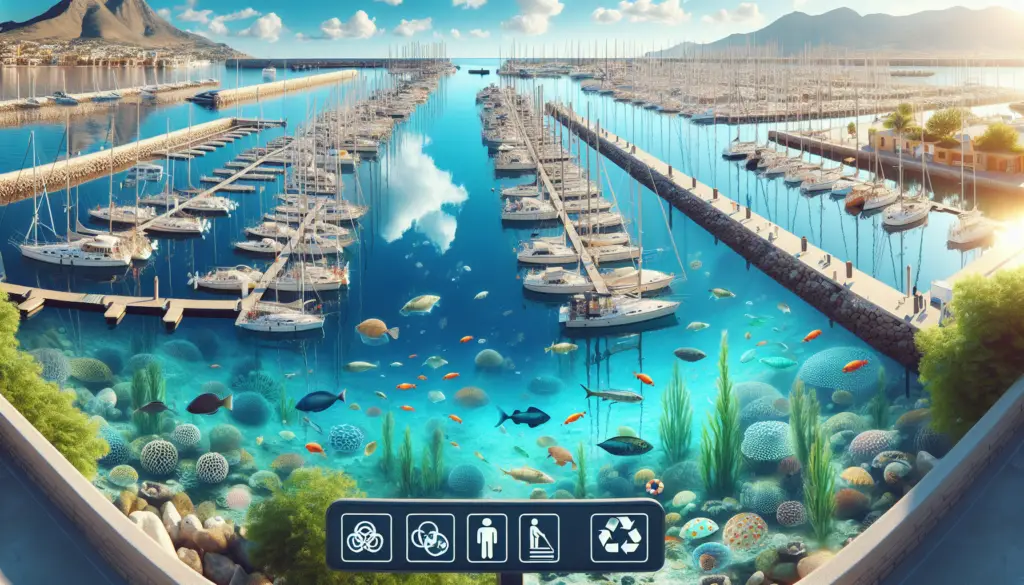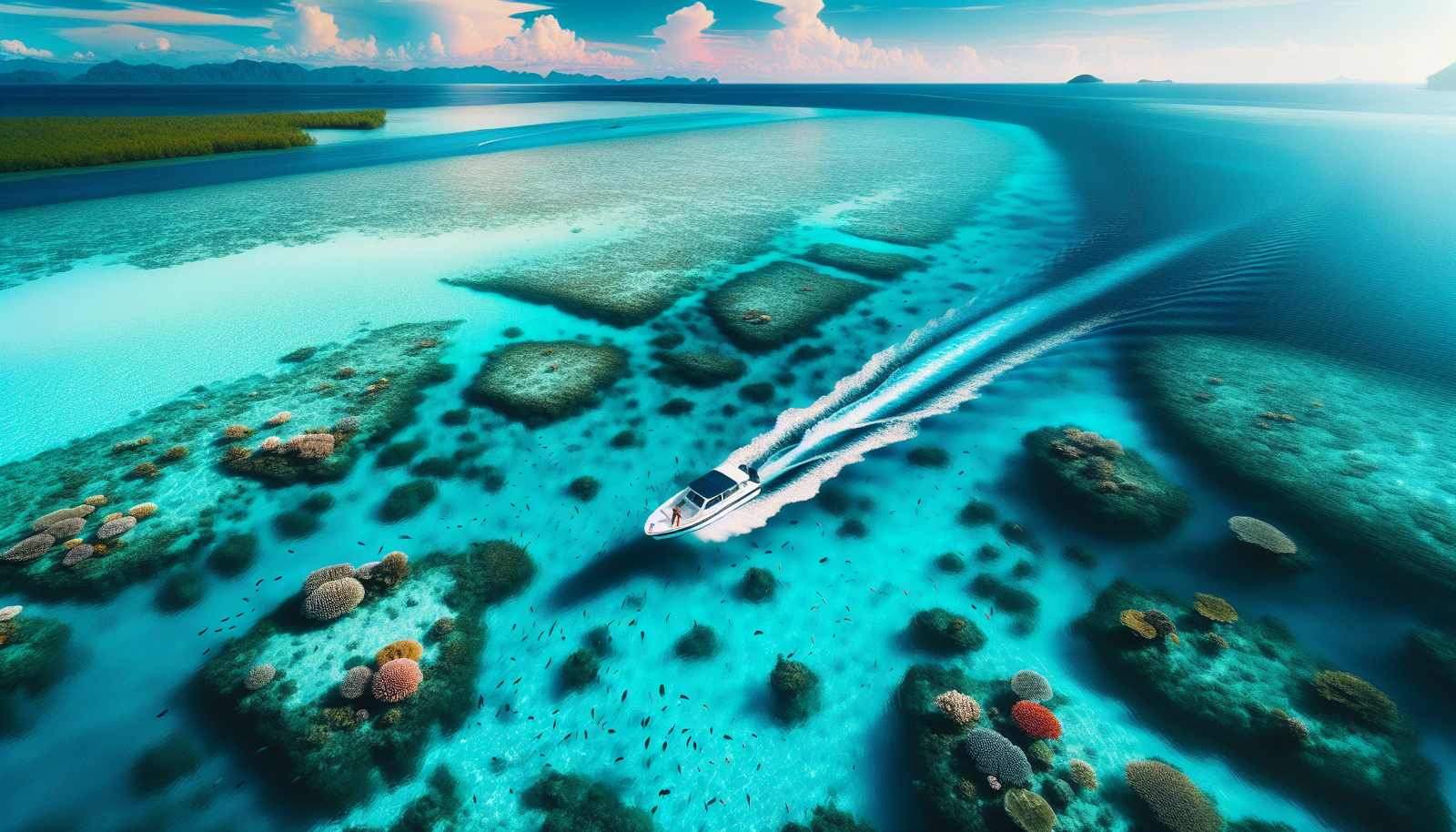Imagine the breeze in your hair, the crystal-clear water beneath you, the sun-spangled ripple of the waves; isn’t this slice of boating paradise what you live for? Yet the vitality of this environment lies in your hands, too. “Best Practices For Maintaining A Clean Boating Environment” asserts your role in preserving this blissful boating aura, empowering you with knowledge of ideal methods to keep your boating environment pristine. It’s not about just keeping your vessel in optimal condition but also making sure your fun doesn’t leave a footprint on the surrounding aquatic ecosystem.

Understanding The Importance Of A Clean Boating Environment
Boating can be a wonderful way to connect with nature, but it’s important to remember that your actions can have a significant impact on the environment. Being a responsible boater means understanding the importance of a clean boating environment and taking actions to ensure we’re protecting our waters and the diverse array of life that calls them home.
Impacts of pollution on marine life
Water pollution has a devastating effect on marine life. It can lead to reduced oxygen levels in the water, altering the delicate balance of marine ecosystems and creating unfavorable living conditions for many species. Aquatic animals and plants often absorb water pollutants, leading to health problems such as disease, genetic mutations, and even death. By understanding these impacts, you’ll appreciate why it’s so essential to maintain a clean boating environment.
Effects on recreational water activities
Polluted waters not only harm marine life but also greatly impact recreational water activities like swimming, fishing, and boating. The presence of harmful chemicals can pose a health risk to humans and pets. In addition, it can lead to unsightly algae blooms and unpleasant odors which can decrease the overall enjoyment of these activities.
Importance of educating boaters
Education is a vital tool in the battle against water pollution. Many boaters may not realize the impact they have on the environment, or understand the steps they can take to minimise their footprint. That’s why it’s crucial to educate boaters on the importance of maintaining a clean boating environment, making sure they know how to implement best practices and understand the consequences of non-compliance.
Adopting Environmentally-Friendly Boating Practices
Becoming a greener boater need not be difficult. By making a few simple changes to your routine, you can drastically reduce your impact on the environment.
Switching to eco-friendly cleaning products
Many cleaning products contain harsh chemicals that, when washed into the sea, can harm aquatic life. Eco-friendly cleaning products are a great alternative as they contain ingredients that break down naturally in the water without causing harm to the marine ecosystem.
Reducing the use of plastics on board
Plastic pollution is one of the biggest threats to our oceans. As a boater, you can help by reducing the use of plastic onboard your vessel. Consider switching to reusable water bottles, cloth shopping bags, and biodegradable alternatives to plastic wrap and cutlery.
Proper waste disposal procedures
It’s also vital to follow Proper waste disposal procedures. Throw away or recycle trash in designated bins at the marina, and never throw it overboard. Also, ensure that toilet waste is disposed of at pump-out stations to prevent untreated sewage from entering the water.

Proper Maintenance Of Boat Engines
An efficiently functioning boat engine doesn’t just help save fuel costs; it also plays a significant role in reducing the pollution levels in water bodies.
Regular cleaning for efficient functioning
Regular cleaning and maintenance of your boat engine will not only ensure that it functions properly but will also help reduce its output of harmful emissions.
Proper disposal of old engine oil
Old engine oil contains harmful substances that can severely damage the aquatic environment. Therefore, it’s essential to dispose of old engine oil at designated recycling facilities rather than pouring it in the water or down the drain.
Switching to low emission engines
Switching to low-emission engines or installing emission-reducing devices can help reduce the impact your boat has on the environment. While these options can be more costly upfront, they can provide cost savings in the long run by improving the engine’s fuel efficiency.
Managing Waste While At Sea
Dealing with waste appropriately is an essential part of responsible boating. It not only helps keep the water clean, but it also contributes to maintaining a healthy marine ecosystem.
Segregation of waste on the boat
Segregating waste on your boat not only helps in the process of waste disposal but also promotes recycling. Make sure you have separate bins for biodegradable and non-biodegradable waste.
Safe disposal of waste at designated marinas
All waste should be disposed of safely at designated disposal stations at the marina. This includes everything from trash to sewage waste.
Avoiding dumping of waste at sea
Dumping waste at sea is never an acceptable practice. It’s harmful to marine life and can also pose a danger to human health. Always make sure you bring all of your waste back to shore.

Reducing Your Carbon Footprint While Boating
While enjoying the open water, it is essential to think about the impact your boating activities are having on the environment.
Adopting slow-sailing
Adopting slow-sailing practices can significantly decrease fuel consumption, reducing the carbon footprint of your boat. Plus, slowing down allows you to enjoy the beauty of the marine environment that much more.
Balancing fuel consumption
Being mindful of how much fuel your boat consumes is another powerful way to reduce your carbon footprint. Regular engine maintenance, avoiding idling or speeding, and only carrying essential items onboard can all contribute to achieving a better fuel balance.
Minimizing idling and speeding
Speeding not only increases the amount of fuel your boat uses, but it also produces more carbon emissions. On the other hand, prolonged idling also contributes to unnecessary fuel consumption. By watching your boat’s speed and reducing idle times, you can help minimize your environmental impact.
Implementing Pollution Control Devices
Tools such as pollution control devices are key to reducing the negative effects of boating on the environment.
Types of devices
Devices such as catalytic converters and mufflers can help control carbon monoxide emissions from your boat’s engine. Other tools such as oil-absorbent mats can help prevent oil and fuel leaks into the water.
Importance of regular maintenance
Just like any other equipment onboard your boat, pollution control devices need regular maintenance to ensure they function effectively and efficiently.
Crucial role of such devices in clean boating
Pollution control devices play a vital role in making boating more environmentally friendly by mitigating the impact of emissions and spills. Installing these devices is a clear sign that you value and respect the marine environment.

Understanding The Consequences of Poor Boating Practices
By understanding the negative consequences of poor boating practices, we can be motivated to adopt habits that preserve our waters.
Degradation of marine ecosystems
Pollution from boats can have an adverse effect on marine ecosystems, causing the quality of water to deteriorate and affecting the health of marine species.
Health hazard for marine species
When we pollute the waters with chemicals, oil, and other harmful substances, we create potential health hazards for marine species. These toxins can cause disease, disrupt growth, or even kill marine life, upsetting the delicate balance of the ecosystem.
Impacts on tourism and local economies
Poor boating practices can also negatively impact tourism and local economies. Polluted waters and beaches can drive tourists away, causing revenue losses for businesses and communities that rely on tourism.
Appropriate Bilge Management
The bilge, the lowest part of your boat where water collects, is also a place where oil and other pollutants can gather. Proper bilge management is crucial in maintaining a clean boating environment.
Usage of bilge sponges
Bilge sponges are a practical and effective tool to absorb oil and fuel in the bilge, preventing them from being pumped overboard. These sponges should be replaced regularly and disposed of properly.
Regular inspection and cleaning of bilges
Conduct regular inspections and clean the bilg out when necessary to reduce the accumulation of pollutants. It’ll also help you spot and repair any leaks promptly.
Importance of non-toxic bilge cleaners
Using non-toxic bilge cleaners is an excellent way to clean the bilge without harming the marine environment. These cleaners break down oil, grease, and fuel into water and carbon dioxide, which are much less harmful to the ecosystem than their source materials.
Promoting Responsibility In Recreational Boating
Promoting responsibility in recreational boating can lead to a significant reduction in pollution and help preserve our waters for future generations.
Education initiatives that focus on clean boating
Education is a powerful tool for promoting clean boating. From learning about pollution consequences to discovering sustainable boating practices, education initiatives can make a huge difference in influencing behaviors of the boaters.
Government regulations for boating
Government regulations play a critical role in maintaining clean boating environments. From mandating proper disposal of waste to designating no-discharge zones, these rules are designed to protect our waters from pollution and need to be respected by every boater.
Role of boaters in promoting clean practices
As a boater, you also play a crucial role in promoting clean practices. By adopting sustainable boating practices and encouraging others to do the same, you can contribute to the protection of our marine environment.
Supporting Clean Marinas
Marinas play a pivotal role in maintaining a clean boating environment. They provide essential services such as waste disposal facilities and can also serve as Educational hubs on clean boating practices.
Marinas with eco-friendly facilities
Marinas that have eco-friendly facilities such as waste recycling and disposal stations for oil and sewage contribute significantly to lessening the impact of boating on the environment. Supporting these marinas sends a clear message that you value sustainability and cleanliness in boating.
Supporting businesses that adhere to clean practices
Similarly, supporting businesses along the coast that adhere to clean practices can make a remarkable difference. From boat repair shops using environmentally safe products to restaurants that avoid single-use plastics, these businesses should be valued.
Importance of clean marinas in maintaining unspoiled boating environments
Clean marinas play a fundamental role in maintaining unspoiled boating environments. They prevent harmful substances from entering our waters and educate boaters about the importance of maintaining clean waters. They are an invaluable resource in our efforts to ensure that the joy of boating can be enjoyed by generations to come.
In conclusion, maintaining a clean boating environment is a shared responsibility that requires the cooperation of everyone involved in boating activities. From adopting eco-friendly habits to supporting clean marinas, you can play a significant role in preserving our precious marine ecosystems for future generations. So, let’s work together as responsible boaters to protect our waters.

